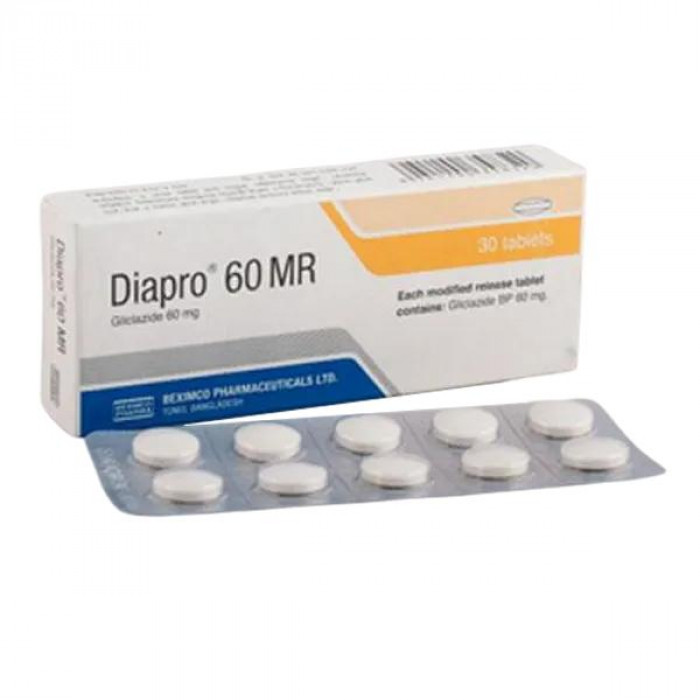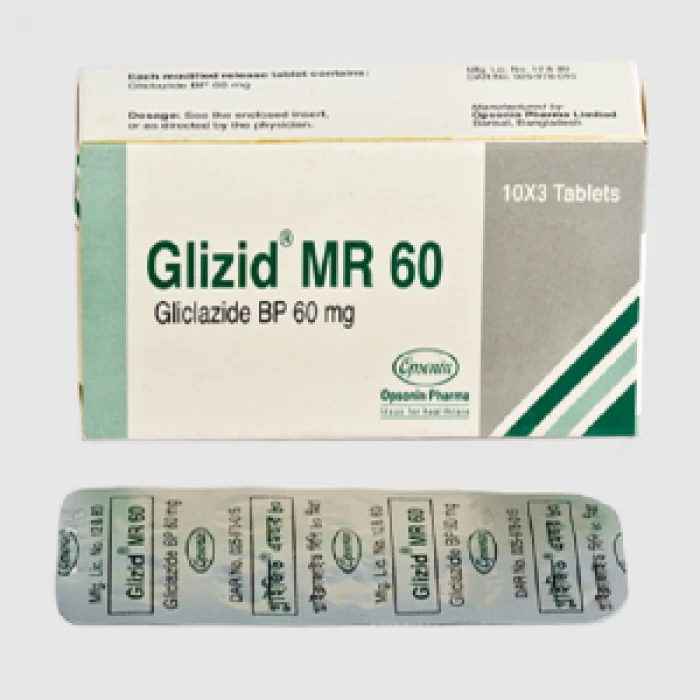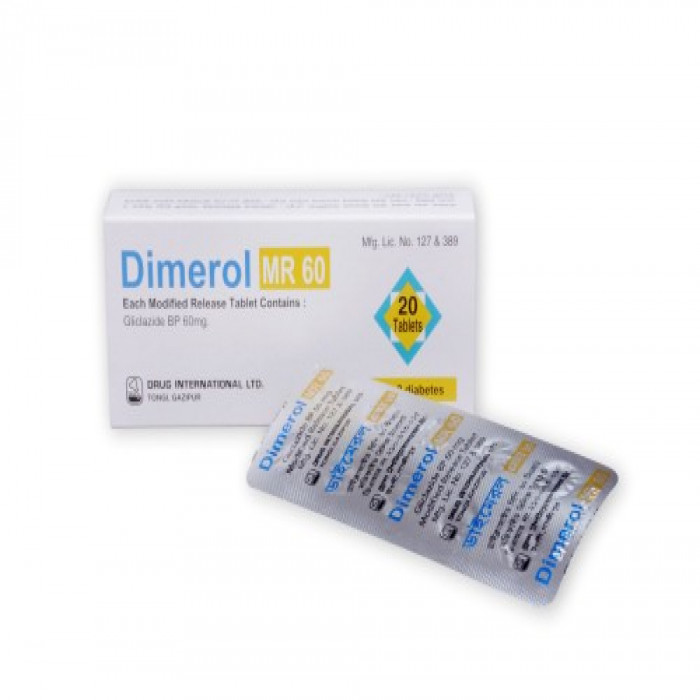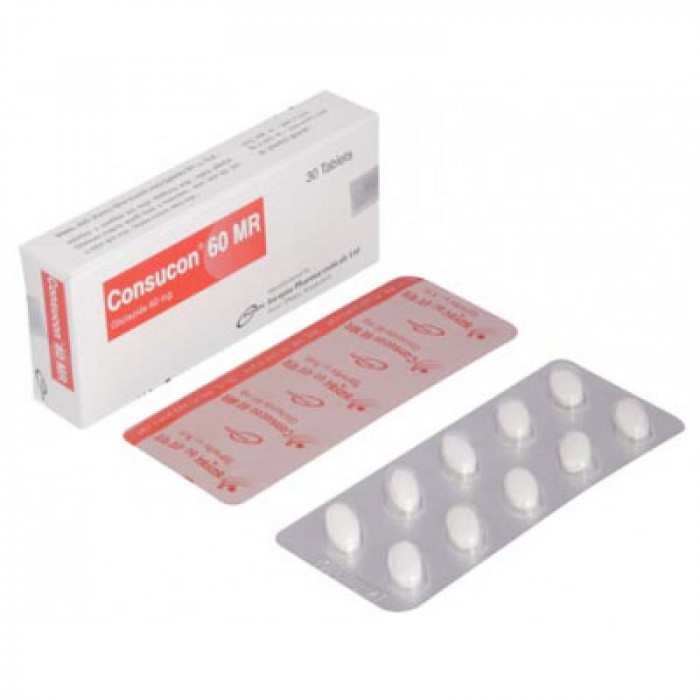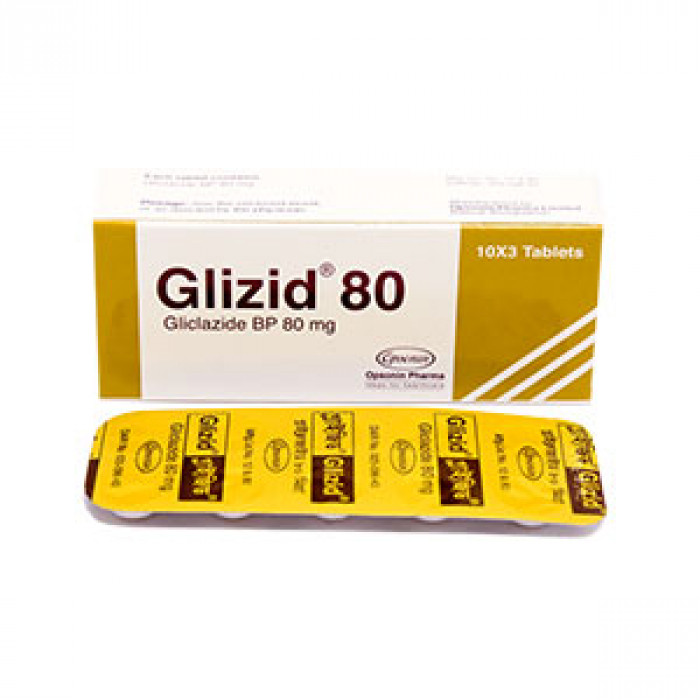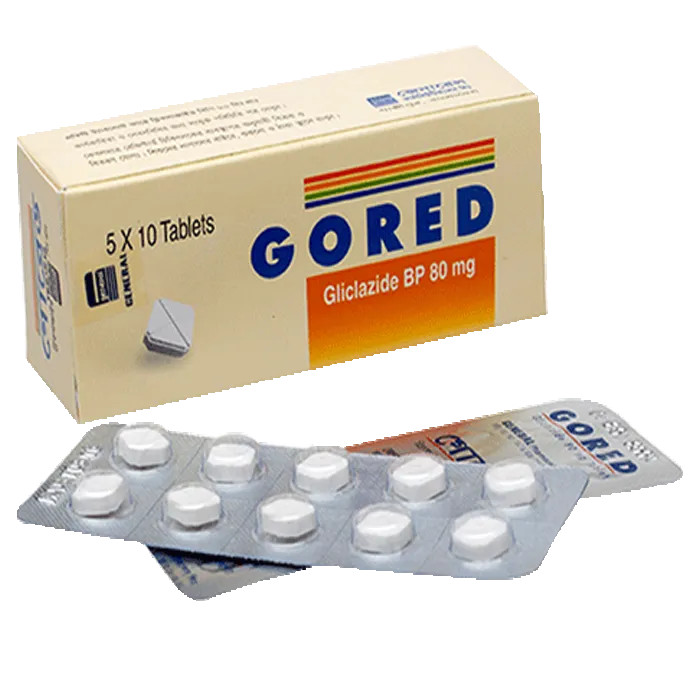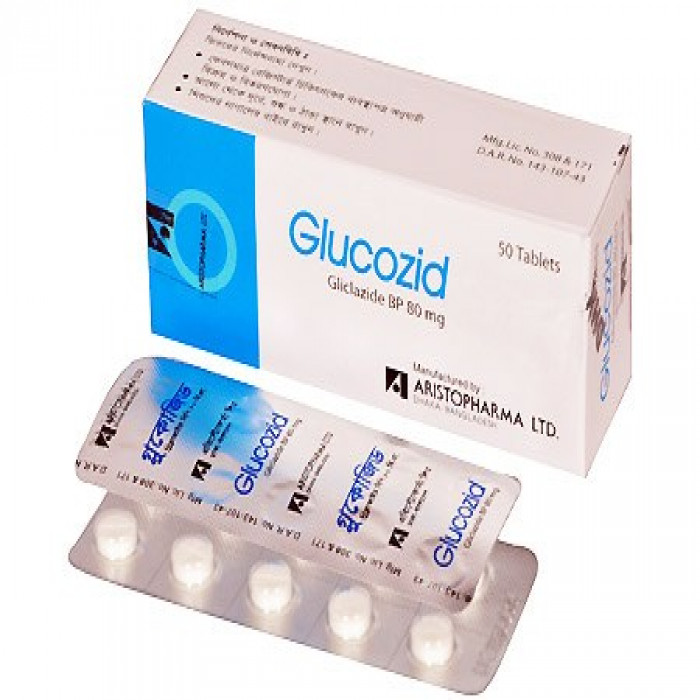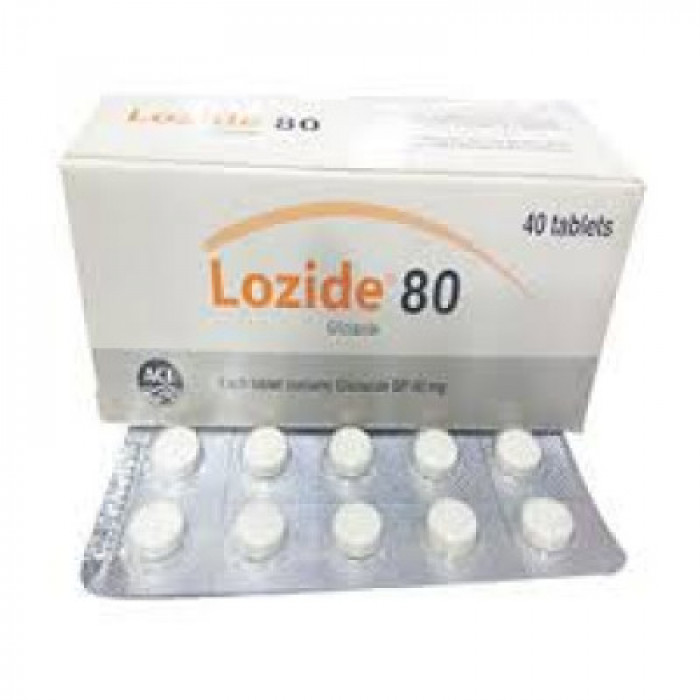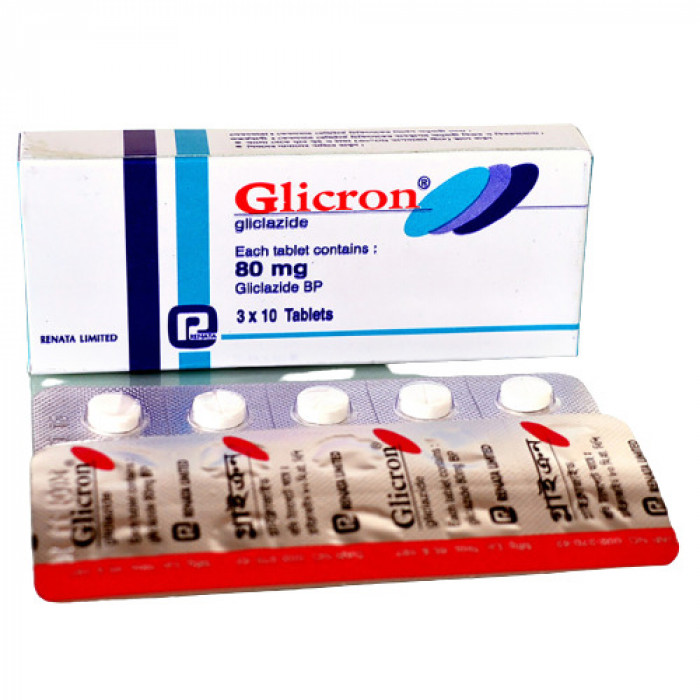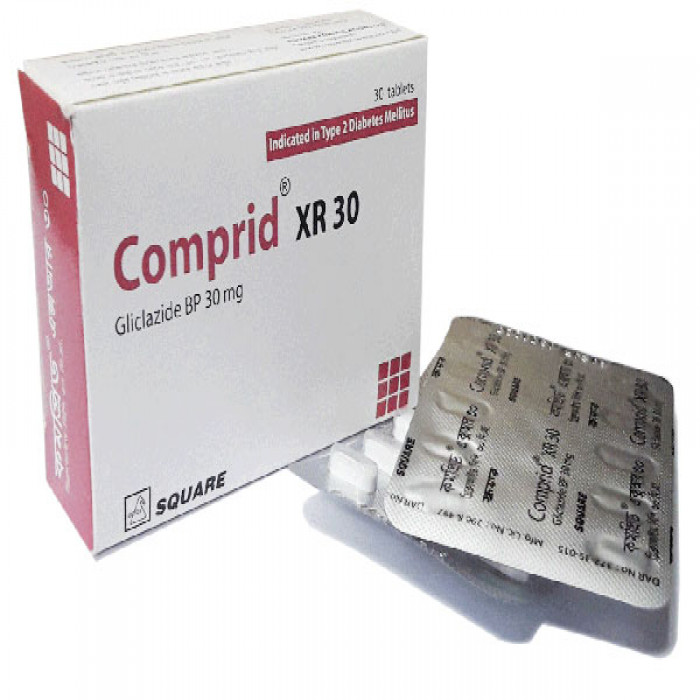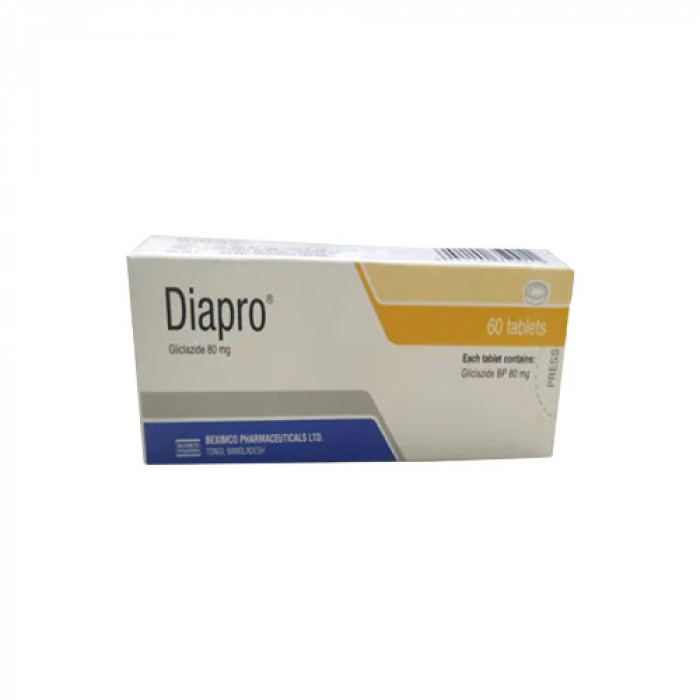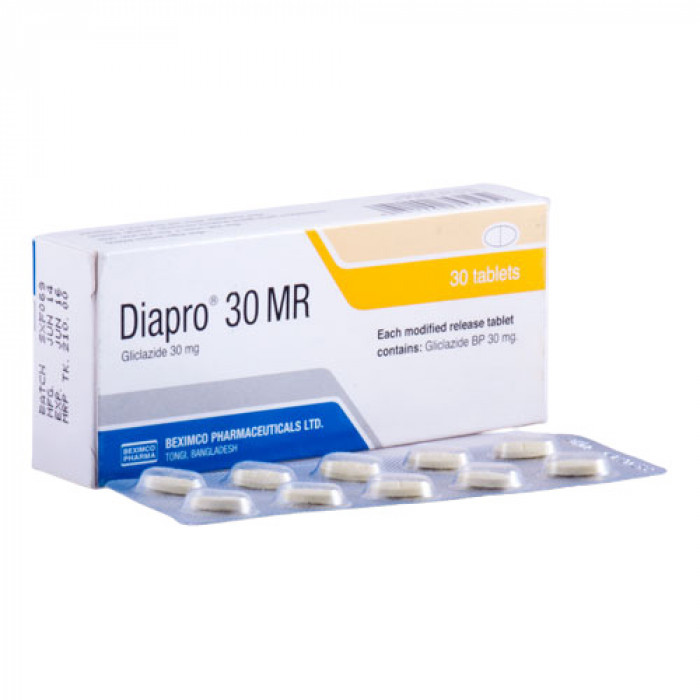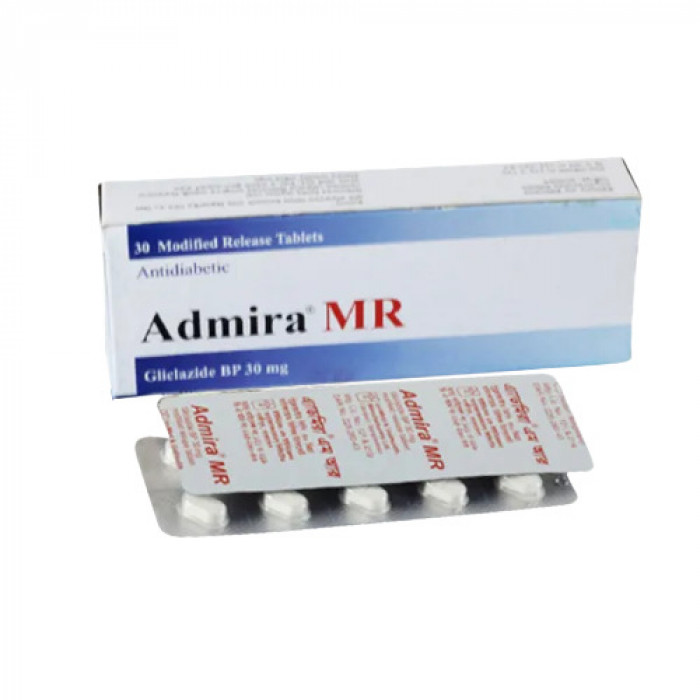
✔ 100% Authentic Product
👁️ Currently Viewing 1915
Admira MR Tablet
Gliclazide: Enhancing Diabetes Management
- Purpose: Lower blood sugar in type 2 diabetes, when lifestyle changes aren't enough.
- Combined Approach: Alongside diet and exercise, aids in better blood sugar control in adults.
Discount
Price: ৳ 69
MRP:
৳
70
2%
Off

100% Genuine Products, Guaranteed

Safe & Secure Payments, Always

Fast, Secure & Efficient Delivery

Proper Packaging
 Cash on Delivery - All over Bangladesh
Cash on Delivery - All over Bangladesh Regular Delivery - 12-24 Hours, Dhaka City* Charge Tk.39-59
Regular Delivery - 12-24 Hours, Dhaka City* Charge Tk.39-59 Regular Delivery - 24-48 Hours, Other Cities* Charge Tk.99-110
Regular Delivery - 24-48 Hours, Other Cities* Charge Tk.99-110
🌙 রমযান অফার 🌙
 ফ্রি ডেলিভারিঃ - ৭৯৯ টাকা+ অর্ডারে, ঢাকা
শহরে
ফ্রি ডেলিভারিঃ - ৭৯৯ টাকা+ অর্ডারে, ঢাকা
শহরে ফ্রি ডেলিভারিঃ - ২৭৯৯ টাকা+ অর্ডারে, ঢাকার
বাহিরে
ফ্রি ডেলিভারিঃ - ২৭৯৯ টাকা+ অর্ডারে, ঢাকার
বাহিরে
📲 মোবাইল অ্যাপ অর্ডারে সাশ্রয় বেশী
-
Google Play Store থেকে ডাউনলোড
-
Apple Store থেকে ডাউনলোড
100% Genuine Products, Guaranteed
Safe & Secure Payments, Always
Fast, Secure & Efficient Delivery
Proper Packaging
 Cash on Delivery - All over Bangladesh
Cash on Delivery - All over Bangladesh Regular Delivery - 12-24 Hours, Dhaka City* Charge Tk.39-59
Regular Delivery - 12-24 Hours, Dhaka City* Charge Tk.39-59 Regular Delivery - 24-48 Hours, Other Cities* Charge Tk.99-110
Regular Delivery - 24-48 Hours, Other Cities* Charge Tk.99-110 ফ্রি ডেলিভারিঃ - ৭৯৯ টাকা+ অর্ডারে, ঢাকা
শহরে
ফ্রি ডেলিভারিঃ - ৭৯৯ টাকা+ অর্ডারে, ঢাকা
শহরে ফ্রি ডেলিভারিঃ - ২৭৯৯ টাকা+ অর্ডারে, ঢাকার
বাহিরে
ফ্রি ডেলিভারিঃ - ২৭৯৯ টাকা+ অর্ডারে, ঢাকার
বাহিরে- Google Play Store থেকে ডাউনলোড
- Apple Store থেকে ডাউনলোড
🌙 রমযান অফার 🌙
📲 মোবাইল অ্যাপ অর্ডারে সাশ্রয় বেশী
✅ Description:
Admira MR Tablet: Empowering Diabetes Control
- Part of the Antidiabetic agents' group aids adults with Type II diabetes when lifestyle adjustments aren't enough.
- Chronic ailment linked to high blood glucose. Insufficient insulin production or cell response can cause it.
- Doctors may advise a healthy diet, regular exercise, and alcohol cessation during Admira MR Tablet therapy.
- Prior to use, inform your doctor of liver/kidney issues, hormonal/genetic conditions, malnutrition, or irregular diet.
- Unsuitable for type I diabetes patients. Consult if pregnant, planning pregnancy, or breastfeeding.
- Hypoglycemia (low blood sugar) is common; symptoms include hunger, sweating, shakiness, or weakness. Regular blood sugar checks and dose adjustments can prevent it.
- Carry sugary snacks for immediate consumption in case of hypoglycemia symptoms. Consult your doctor if symptoms persist.
- Headache, dizziness, and constipation are possible side effects of Admira MR Tablet.
Safety Advices

Alcohol
UNSAFE
Avoid consuming alcohol while taking Admira MR Tablet, as it could worsen your condition.

Pregnancy
CONSULT YOUR DOCTOR
It is generally not advised to use Admira MR Tablet during pregnancy. Consult your doctor before taking it if you are pregnant.

Breastfeeding
CONSULT YOUR DOCTOR
Admira MR Tablet is generally not recommended for use in breastfeeding women. Consult your doctor before taking it if you are breastfeeding.

Driving
CAUTION
If you experience dizziness or blurred vision after taking Admira MR Tablet, avoid driving or operating machinery.

Kidney
CONSULT YOUR DOCTOR
Admira MR Tablet is not recommended for use in patients with severe kidney disease. If you have decreased kidney function, use it with caution and consult your doctor.

Liver
CONSULT YOUR DOCTOR
Admira MR Tablet is not recommended for use in patients with severe liver disease. If you have decreased liver function, use it with caution and consult your doctor.
✔️ Uses of Admira MR Tablet
- Treatment of Type 2 Diabetes Mellitus
✔️ How does Admira MR Tablet work?
Admira MR Tablet works by increasing the release of insulin from your pancreas (a part of your digestive system that produces insulin and other vital enzymes). Thus it lowers your blood sugar levels.
✔️ Side Effects of Admira MR Tablet
- Diarrhea
- Constipation
- Stomach ache or indigestion
- Nausea)
- Vomiting)
- Hypoglycemia (low blood sugar levels)
✔️ Quick Suggestions:
- Eat Regularly: Avoid long gaps between meals or snacks.
- Monitor Blood Sugar: Regularly check levels, especially during fluctuations.
- Gradual Weight Loss: Aim for a healthy BMI (18.5-24.9).
- Healthy Fats: Cut saturated fat; opt for omega-3 oils in cooking.
- Stress Management: Use mindfulness, yoga, or meditation to control stress.
- Blood Pressure: Keep it normal (120/80mmHg) to lower cardiovascular risk.
- Follow Directions: Take Admira MR Tablet as prescribed; avoid self-medicating.
- Stay Informed: Learn early signs of high/low blood sugar from your doctor.
✔️ Indication of Admira MR Tablet
Admira MR Tablet is used to treat maturity-onset diabetes, and diabetes with or without obesity in adults when diet, exercise, weight loss, or insulin therapy fail to provide adequate results.
✔️ Pharmacology
Gliclazide, a second-generation sulfonylurea, holds hypoglycemic and potential hematological impacts. It curbs the liver's glucose production, concurrently spurring insulin secretion from pancreatic β-cells. This is achieved by enhancing Ca+2 transportation across the β-cell membranes.
✔️ Dosage & Administration of
- The usual starting dose of Gliclazide is 40 to 80 mg per day in the form of a film-coated tablet. If necessary, the dosage can be increased to a maximum of 320 mg daily, split into multiple doses. It's important to take the medication before a meal. Gliclazide is not suitable for children and is contraindicated in juvenile-onset diabetes.
- Gliclazide 30 mg is typically taken as 1 to 4 tablets per day, while Gliclazide 60 mg is taken as 1 to 2 tablets per day in a single dose. It's recommended to take the medication in the morning, preferably before breakfast, to minimize the risk of stomach issues.
- If you miss a dose of Admira MR Tablet, try to take it as soon as you remember. If it's close to the time for your next dose, skip the missed one and continue with your regular dosing schedule. Avoid doubling the dose to make up for the missed one, and remember not to skip your blood sugar medicines.
- In case of overdose, symptoms like low blood pressure, headache, dizziness, sweating, hunger, shakiness, weakness, double vision, confusion, and palpitations might occur. Seek immediate medical attention if you suspect an overdose of Admira MR Tablet or experience such symptoms.
✔️ Interaction
Certain medications can interact with Gliclazide, affecting its hypoglycemic (blood sugar-lowering) effects:
Enhancing Hypoglycemic Effects:
- Aspirin
- Non-Steroidal Anti-Inflammatory Drugs (NSAIDs)
- Phenylbutazone
- Clofibrate
- Sulfonamide
- Cimetidine
- Imidazole antifungal medications
- Monoamine Oxidase inhibitors (MAOIs)
Decreasing Hypoglycemic Effects:
- Rifampin
- Barbiturates
- Phenytoin
- Thiazide diuretics
- Diazoxide
- Glucocorticoids
- Estrogens
- Sympathomimetic medications
- Alcohol
✔️ Contraindications
Juvenile-Onset (Type-1) Diabetes: Gliclazide is not suitable for individuals with type-1 diabetes, which is characterized by the inability of the pancreas to produce insulin.
Diabetes Associated with Ketosis: Gliclazide is not recommended for diabetes patients experiencing ketosis, a condition where the body burns fat for energy due to insufficient insulin.
Diabetic Patients Undergoing Surgery, Severe Injury, or Infection: Gliclazide should be avoided in diabetic patients who are undergoing surgery, have experienced a severe injury, or are dealing with infections, as their medical conditions may affect the use of the medication.
Hypersensitivity to Sulfonylurea Group: If a patient has a known hypersensitivity or allergy to drugs in the sulfonylurea group, Gliclazide should not be used.
Pregnancy and Breastfeeding: Gliclazide is not recommended for pregnant or breastfeeding women due to potential risks to the fetus or infant.
Hepatic Insufficiency: Gliclazide should be avoided in patients with severe liver insufficiency.
✔️ Pregnancy & Lactation
Pregnant women should avoid using gliclazide. It should not be used by a woman who is breastfeeding.
✔️ Precautions & Warnings
- Monitor Blood Glucose: Regularly monitor your blood glucose levels as directed by your healthcare provider. This helps to ensure your diabetes is well-managed and adjust your treatment plan if needed.
- Insulin During Metabolic Stress: In situations of metabolic stress (e.g., illness, surgery), you may require insulin in addition to Gliclazide to manage blood glucose levels effectively. Consult your doctor in such cases.
- Transition from Combination Therapy: If you are transitioning from a combination therapy involving Gliclazide, your healthcare provider will guide you through the process to ensure a smooth transition and proper management of your diabetes.
- Risk of Severe Hypoglycemia: Elderly individuals, debilitated patients, and those with hepatic or renal impairment are at an increased risk of severe hypoglycemia (low blood sugar). Extra caution and monitoring are advised in these populations.
- Hypoglycemia Risk Factors: Be aware of situations that may increase the risk of hypoglycemia, such as inadequate caloric intake, strenuous exercise, alcohol consumption, or the use of multiple antidiabetic drugs simultaneously.
✔️ Storage Conditions
- Store Admira MR Tablet below 25°C at a dry place, protected from light.
- Keep it away from children and pets.
⚠️Disclaimer:
At ePharma, we’re committed to providing accurate and accessible health information. However, all content is intended for informational purposes only and should not replace medical advice from a qualified physician. Please consult your healthcare provider for personalized guidance. We aim to support, not substitute, the doctor-patient relationship.




